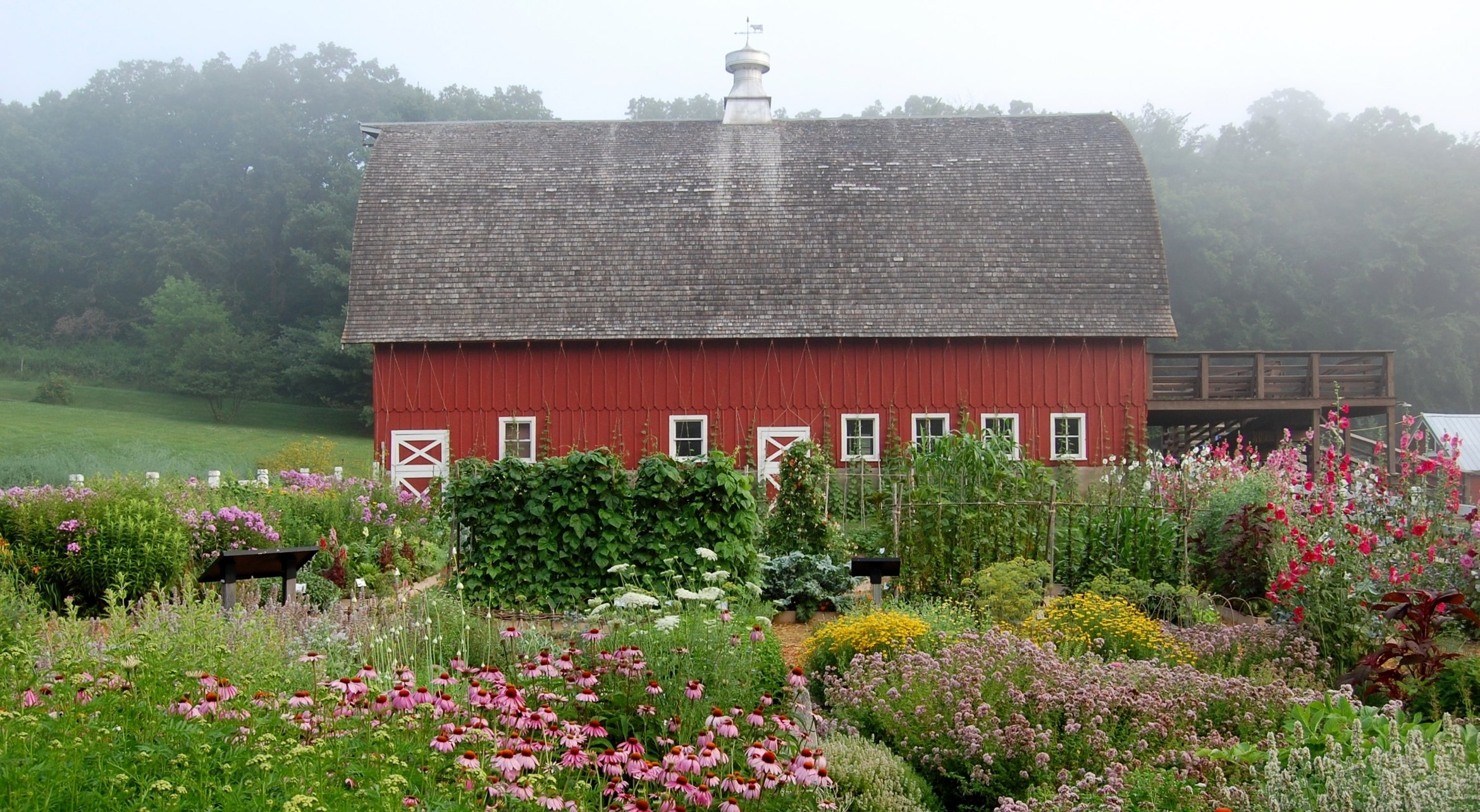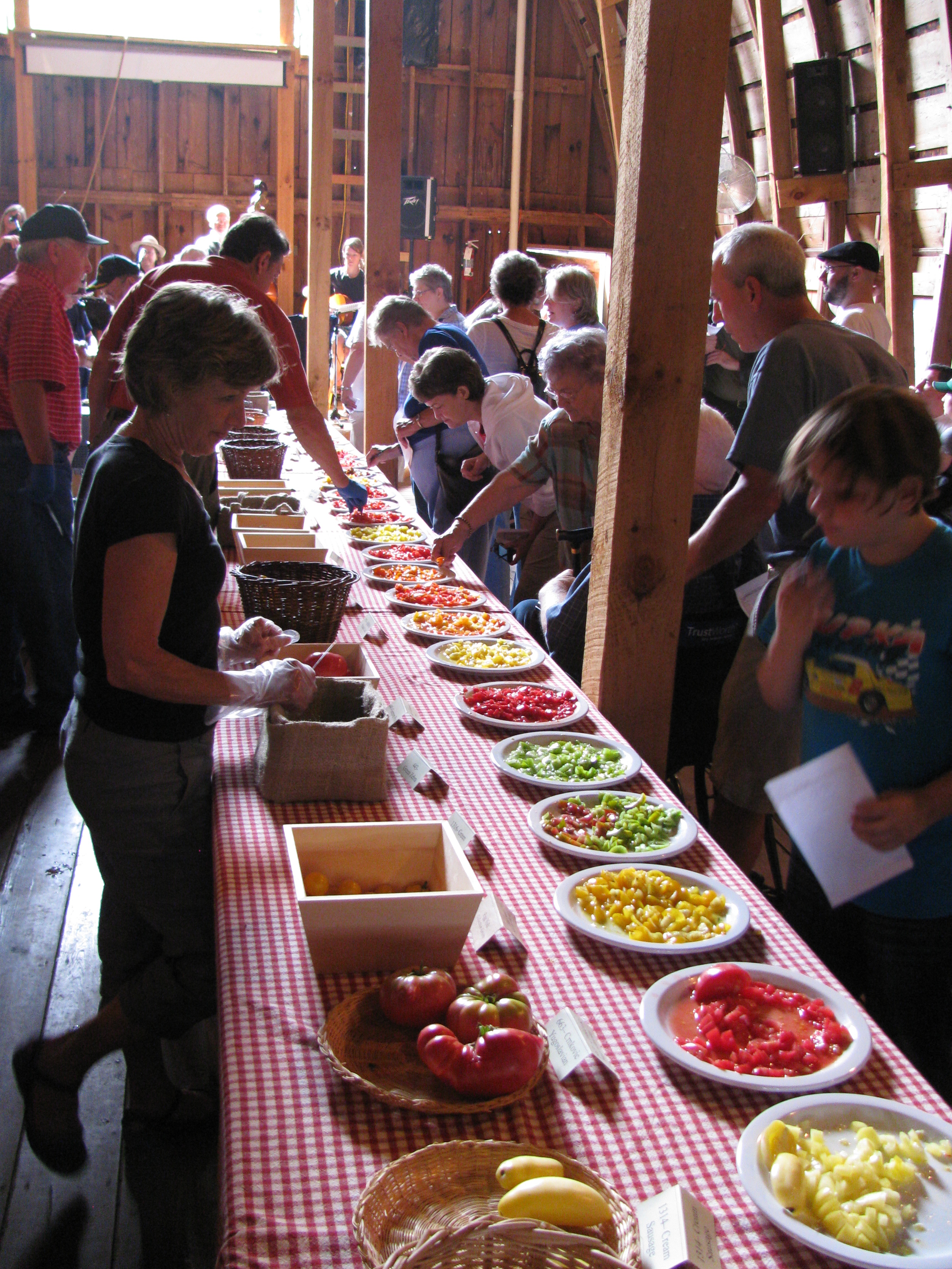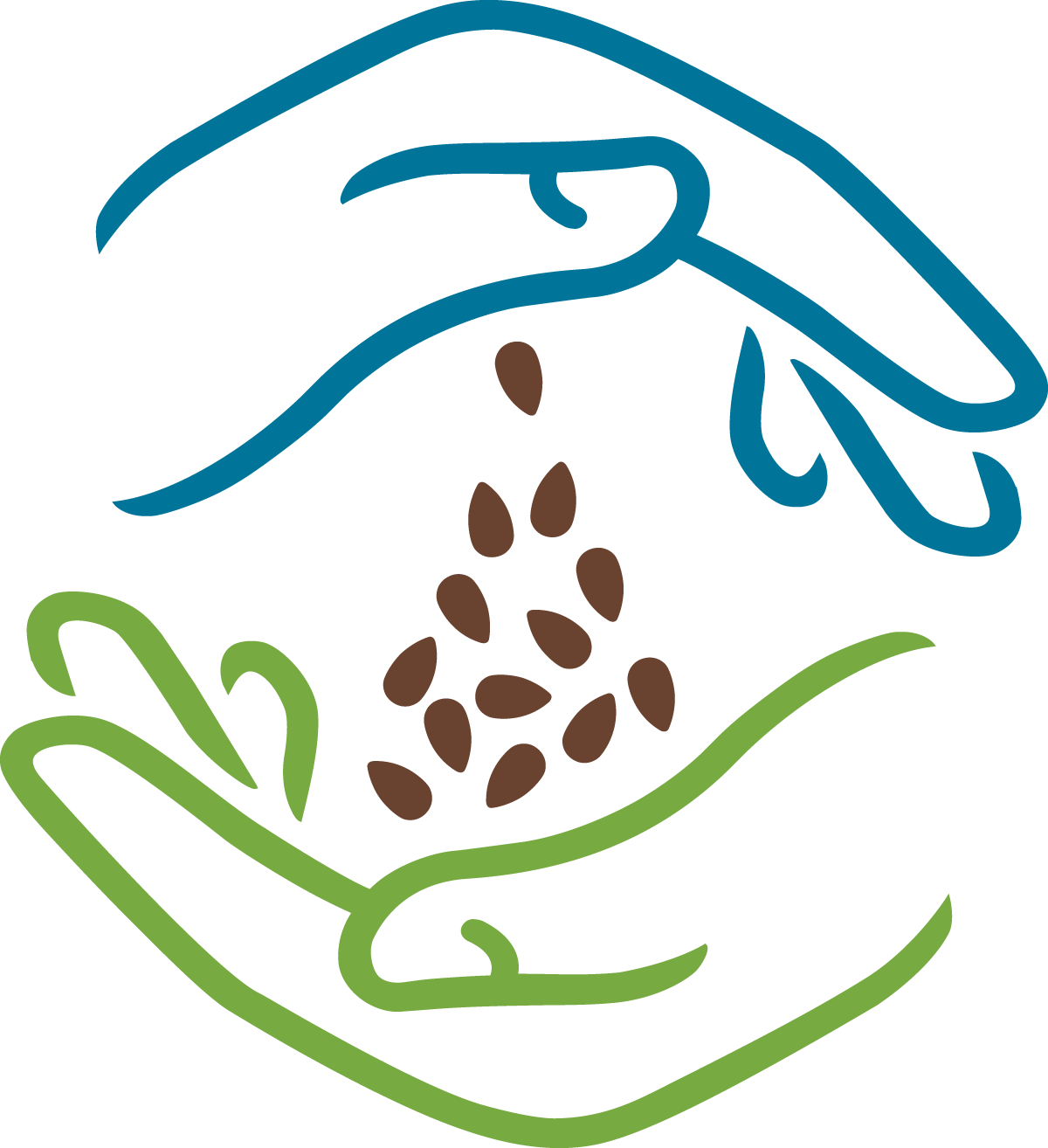Decorah Native Appointed Deputy Director of Seed Savers Exchange
/ Decorah, IA— Seed Savers Exchange (SSE), the nation’s leading nonprofit organization dedicated to saving and sharing heirloom seeds, is pleased to announce the appointment of Lynne Rilling as the nonprofit’s Deputy Director - Administration. This is a new position created by the Board of Directors to respond to the growth the organization has achieved over the last few years.
A Certified Public Accountant, Rilling received her B.A. at Upper Iowa University. She has extensive business and management experience, having served as controller/General Manager of Hotel Winneshiek as well as an accountant with Hacker Nelson & Co. Hired by Seed Savers Exchange in October 2011 as the chief financial officer, serving both as corporate treasurer and chief accountant, Rilling’s additional responsibilities will include management of human resources and the operation of the Lillian Goldman Visitor Center.
Decorah, IA— Seed Savers Exchange (SSE), the nation’s leading nonprofit organization dedicated to saving and sharing heirloom seeds, is pleased to announce the appointment of Lynne Rilling as the nonprofit’s Deputy Director - Administration. This is a new position created by the Board of Directors to respond to the growth the organization has achieved over the last few years.
A Certified Public Accountant, Rilling received her B.A. at Upper Iowa University. She has extensive business and management experience, having served as controller/General Manager of Hotel Winneshiek as well as an accountant with Hacker Nelson & Co. Hired by Seed Savers Exchange in October 2011 as the chief financial officer, serving both as corporate treasurer and chief accountant, Rilling’s additional responsibilities will include management of human resources and the operation of the Lillian Goldman Visitor Center.
“Lynne’s skills, hard work and professional demeanor are a perfect match for our growing organization,” SSE’s Executive Director John Torgrimson said. “She is a delight to work with and is highly regarded by her colleagues and peers.”
While at Hacker Nelson & Co. around 1999-2000, Rilling was assigned to handle the accounting contract at Seed Savers Exchange. “I always thought if there was an opening that was a fit for me [at Seed Savers Exchange] I would take it. I love the mission, vision, and values of the organization. It’s a fantastic place to work,” Rilling commented.
Rilling also has an interesting connection with SSE’s Heritage Farm, located six miles north of Decorah. The land where the iconic barn and Lillian Goldman Visitor’s Center now sits was once owned by Phillip and Clara Halse in the late 1800’s - they are Lynne’s great-great grandparents on her father Earl’s side of the family.
Rilling was born and raised in rural Decorah and is a graduate of North Winneshiek High School. She is active in the community, serving as a board member on the Decorah Chamber’s Downtown Decorah Betterment Association. Lynne and her husband Donald Rilling have three grown children, Justin, Jesse and Morgan.
About Seed Savers Exchange (SSE): Located six miles north of Decorah, Iowa, Seed Savers Exchange is a non-profit membership organization dedicated to the preservation and distribution of heirloom seeds. Seed Savers maintains a collection of thousands of open-pollinated varieties, making it one of the largest non-governmental seed banks in the United States.







 find vegetable varieties, will include staff favorites like the deep maroon amaranth ‘Kerala Red,’ a nearly black lettuce ‘Revolution-Evolution,’ a classic mustard known as ‘Myers’ Family Heirloom, and the relentlessly fruitful tomato ‘Tiny Tim Yellow.’ Transplants will be sold for $3 for 3 inch pots, and $4 for 4-packs, available in limited quantities. SSE staff will also be on hand during the event to answer gardening and seed saving questions.
find vegetable varieties, will include staff favorites like the deep maroon amaranth ‘Kerala Red,’ a nearly black lettuce ‘Revolution-Evolution,’ a classic mustard known as ‘Myers’ Family Heirloom, and the relentlessly fruitful tomato ‘Tiny Tim Yellow.’ Transplants will be sold for $3 for 3 inch pots, and $4 for 4-packs, available in limited quantities. SSE staff will also be on hand during the event to answer gardening and seed saving questions. than life canvases by Waukon artist Valerie Miller of Steel Cow Gallery. The exhibit shows Valerie's Ancient White Park 'girls' and 12 of their closest bovine friends. Walk along the trails to view these jumbo prints placed in the pastures at SSE's Heritage Farm. The Ancient White Park cattle, a threatened heritage breed, roamed the British Isles over 2,000 years ago.
than life canvases by Waukon artist Valerie Miller of Steel Cow Gallery. The exhibit shows Valerie's Ancient White Park 'girls' and 12 of their closest bovine friends. Walk along the trails to view these jumbo prints placed in the pastures at SSE's Heritage Farm. The Ancient White Park cattle, a threatened heritage breed, roamed the British Isles over 2,000 years ago. College associate professor of music Brooke Joyce. Professor Joyce is using the money to create an outdoor sound installation at Seed Savers Exchange in Decorah.
College associate professor of music Brooke Joyce. Professor Joyce is using the money to create an outdoor sound installation at Seed Savers Exchange in Decorah.






 1:00pm Emily Torgrimson—“Sponsoring community meals to support charitable organizations.”
1:00pm Emily Torgrimson—“Sponsoring community meals to support charitable organizations.” 3:00 pm Dan Carmody—"Developing Regional Food Systems." Carmody is the President of the
3:00 pm Dan Carmody—"Developing Regional Food Systems." Carmody is the President of the 
















